Clint Eastwood: Hollywood's paradoxical superstar turns 90
by Stuart Braun, Jochen KürtenA spaghetti western star whose 'Dirty Harry' films made him an anti-hero of the political right, the Oscar-winning actor and director later praised Donald Trump. But as he turns 90, his true legacy is as an auteur.
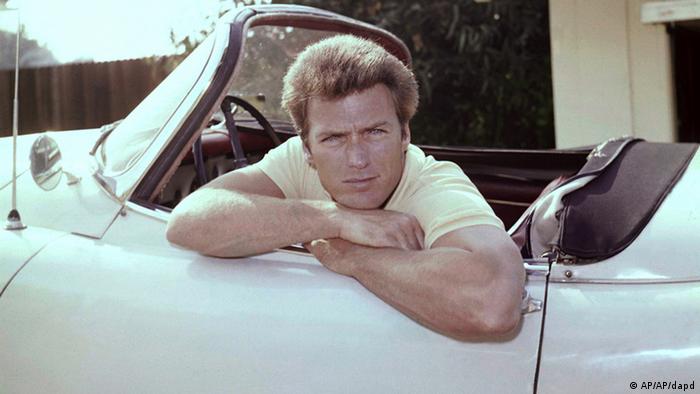
It all began in television
Hard to believe, but Clint Eastwood's career began quite modestly in television. Now a film hero and world-famous actor, he had to keep himself afloat then by taking on minor TV roles beginning in the mid-1950s. The powerful-looking actor also had some roles in feature films, but they were likewise minor appearances.
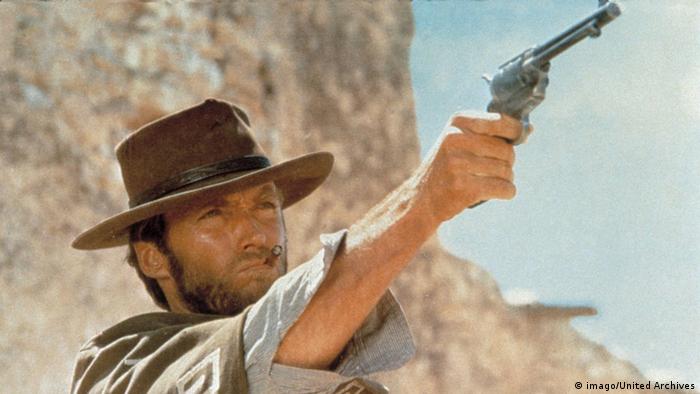
'A Fistful of Dollars' (1964)
The US TV actor Eastwood was eventually hired by Italian director Sergio Leone, who couldn't afford more expensive stars — and earned about $15,000 for his appearance in the Spaghetti western "A Fistful of Dollars," playing a gunslinger who goes on the gravy train among two rival gangs. The film was a huge success.
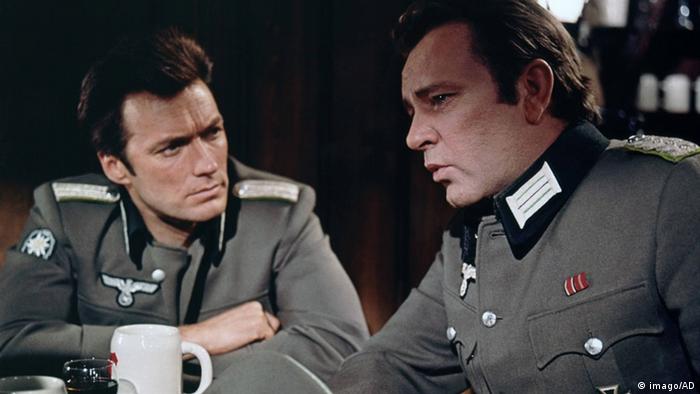
'Where Eagles Dare' (1968)
Clint Eastwood also played the cool bounty hunter in Leone's succeeding westerns "For a Few Dollars More" and "The Good, The Bad and The Ugly." They marked Eastwood's breakthrough and turned him into a star. Ruggedly handsome and with an enormous physical presence, he often played tough men. In the war movie "Where Eagles Dare," he made his mark at Richard Burton's side.
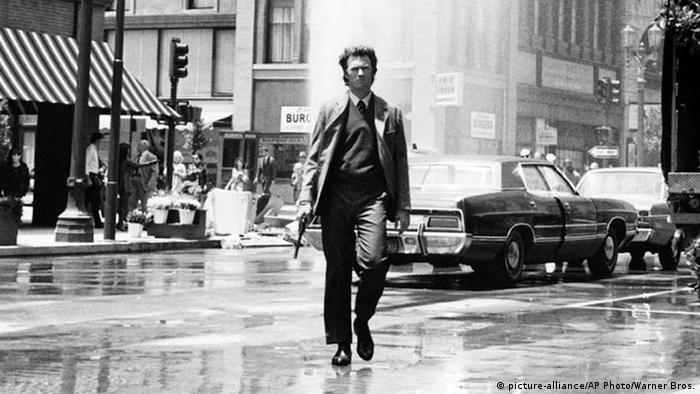
'Dirty Harry' (1971)
Eastwood made his next career leap in 1971 when he played the rude inspector Harry Callahan in "Dirty Harry" for director Don Siegel, with whom he also shot numerous movies in the following years. The tough police thriller became one of the most influential movies of the genre. The cynical and inconsiderate Callahan became something of a cult among millions of cinema fans.
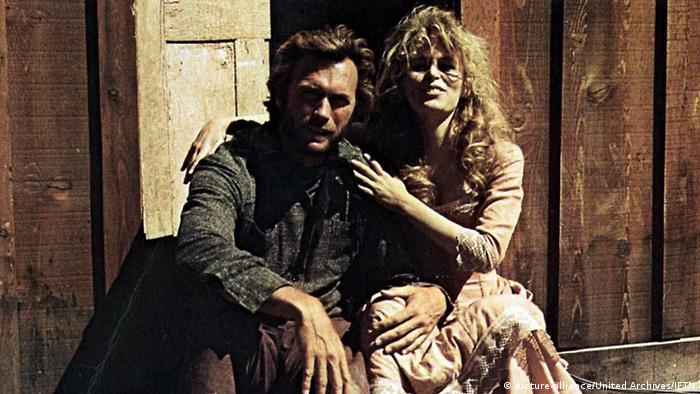
'High Plains Drifter' (1973)
Shortly after "Dirty Harry," Clint Eastwood took on his first role as director: with the thriller "Play Misty for Me." Establishing himself as an action-oriented filmmaker, the star actor remained true to the western genre as a director, for example with "High Plains Drifter" (photo), in which he continued to hone his cinema image as a taciturn, assertive and often unscrupulous pistolero.
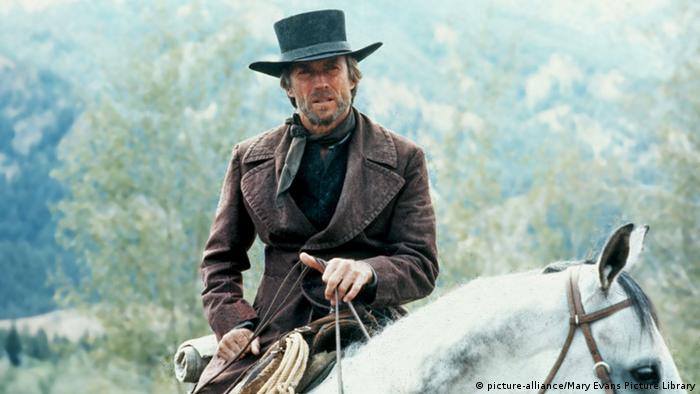
'Pale Rider' (1985)
Clint Eastwood set new accents in the 1985 western "Pale Rider." The director and actor had already tried his hand at other genres before, including comedies. With "Pale Rider," he not only returned to the western, he rewrote the legend. His roles were no longer quite so unscrupulous and one-dimensional. "Pale Rider" earned him an invitation to the Cannes Film Festival.
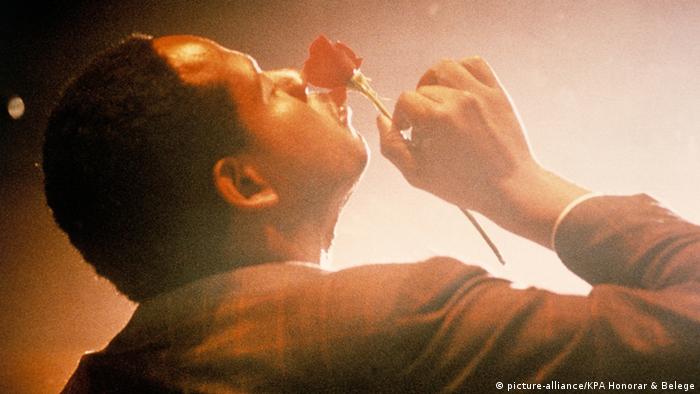
'Bird' (1988)
Three years later, Clint Eastwood finally made the leap to arthouse cinema as a director. With "Bird," jazz fan Eastwood paid a cinematic tribute to the American musician Charlie Parker. The biographical film starring Forest Whitaker collected several awards.

'Unforgiven' (1992)
In 1992, Clint Eastwood returned to his favorite genre with the western "Unforgiven." But he completely demystified the role of the tough cowboy and pistol shooter. "Unforgiven" depicted an older gunslinger who falls off his horse and hardly has any control over the situation. The work was rewarded with four Oscars, including best picture and best director.

'The Bridges of Madison County' (1995)
By the mid-1990s, Clint Eastwood had reached retirement age, but he remained very active, imbuing his work with his life experience. In the romantic drama "The Bridges of Madison County," a love affair between Robert (Eastwood) and Francesca (Meryl Streep) deeply affects the rest of their lives. For the first time, Eastwood directed a movie with a woman as the central figure.

'Million Dollar Baby' (2004)
A decade later, Eastwood was at the absolute peak of his career. In the 2004 film "Million Dollar Baby," the actor played an aging boxing coach who takes a talented athlete (Hilary Swank) under his wing, and she eventually makes it to the world championship. A stirring tragedy about life and death, the sports film grabbed four Oscars.
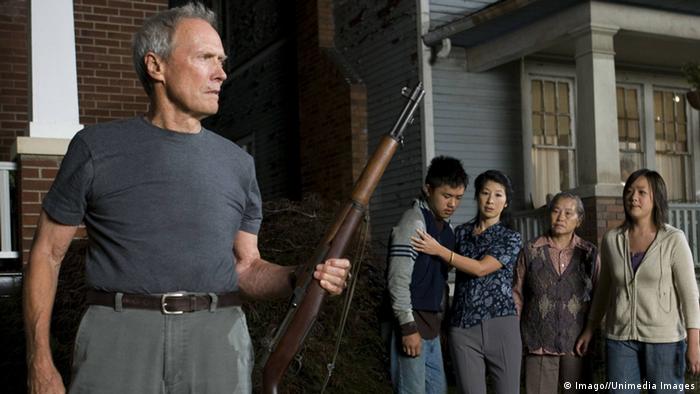
'Gran Torino' (2008)
At age 78, Clint Eastwood directed his 17th film, and proving his enormous energy and creativity yet again, he was both director and leading actor. "Gran Torino" takes a look at immigrants in the US, at racism and violence, at prejudice and how to deal with it. The movie shines with complex characters and great actors.
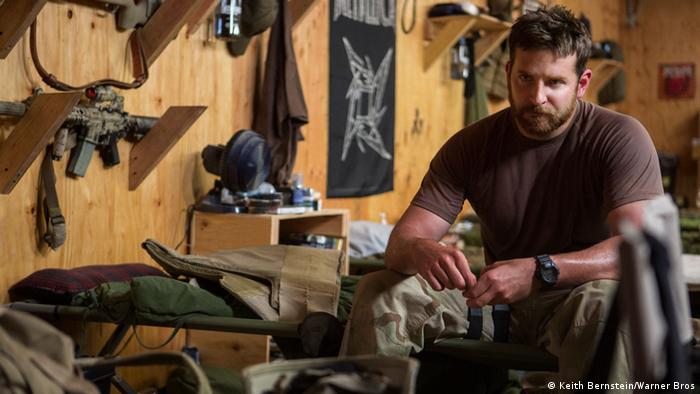
'American Sniper' (2014)
Clint Eastwood's 2014 film "American Sniper" was a huge success. The story of US Navy SEAL Chris Kyle — the most successful sniper in the US Army in Iraq but later murdered in his home country — was an absolute box-office hit.
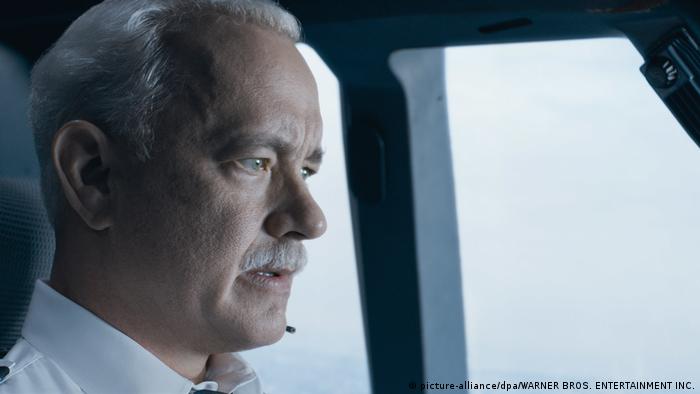
'Sully' (2016)
Eastwood took up with mega-star Tom Hanks (shown here) to create the 2016 drama "Sully," about the US pilot Chesley Sullenberger, who initiated the January 2009 emergency landing of a doomed flight onto the Hudson River in New York. The film revolves around the landing, the survival of all 155 passengers and crew, and the subsequent publicity and investigation.
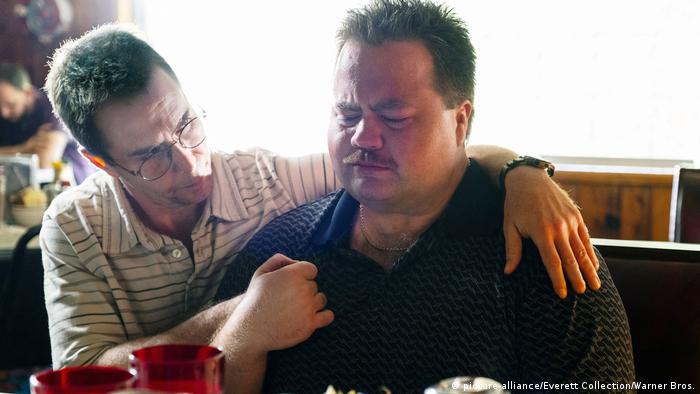
'Richard Jewell' (2019)
Clint Eastwood's most recent film, "Richard Jewell," released at the end of 2019, revolves around US security guard Richard Jewell, who saved many lives from an exploding bomb at the 1996 Olympics. He was later vilified by journalists and the press, who falsely reported that he was a terrorist.
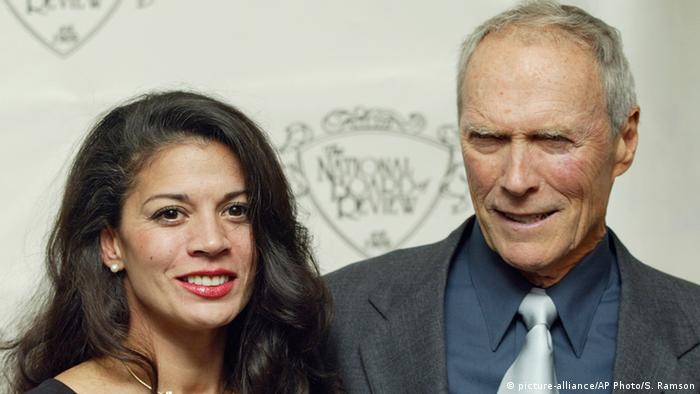
Eastwood and his private life
As an actor, director and public figure, Clint Eastwood is a cult figure in his home country, but also worldwide. Yet he has never been flashy or forced himself into the limelight. Eastwood is not a big fan of red-carpet appearances, and has never been one to show off his marriages in public. Here he is with his longtime wife Dina, from whom he separated in 2013.

The patriot
Eastwood has been involved in US politics, formerly for the Republicans. "I think I was already socially liberal and fiscally conservative before this became fashionable," he once said. He has been critical of US foreign missions, but also been criticized by fellow actors like Meryl Streep for his support of US President Donald Trump. He has meanwhile distanced himself from the president.
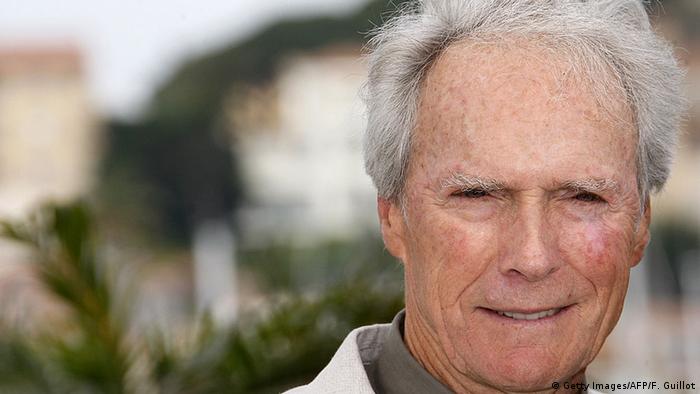
Healthy body, healthy mind, productive life?
Eastwood is known to be a fitness enthusiast, conscientious eater and practitioner of transcendental meditation, surely helping him stay fit at age 90.
Author: Jochen Kürten (als), Louisa Schaefer
In 2016, when Clint Eastwood said he'd support Donald Trump over Hillary Clinton during the US presidential election, he also had a lot to say about the "political correctness era" that was "weakening society." Sick of the "kiss-ass generation," he pined for a time when "nothing was politically incorrect because everything was always a joke."
It was something his character Harry Callahan from the Dirty Harry franchise of the 1970s and 80s might have said in a swipe at the social liberalism of the era.
But lately there's been a shift. In February, Eastwood said he sympathized with the #MeToo movement, itself a vanguard of identity politics and political correctness. He stood by women and men who are "standing up against people who are trying to shake you down for sexual favors," he said in an interview with the Wall Street Journal. He also endorsed Democratic presidential candidate Mike Bloomberg and distanced himself from Donald Trump.
As a director, Eastwood's films have mostly transcended politics. The uncompromising auteur has emerged as a true artist, honored with best director Oscars for the arthouse western Unforgiven of 1993 and his stripped-back, heartfelt portrayal of a female boxer in Million Dollar Baby. He remains difficult to pigeonhole — and at 90 years of age, a formidable filmmaker who can't be ignored. Last year's Richard Jewell attracted controversy but also won plaudits and a place in the American Film Institute's top 10 films of the year.
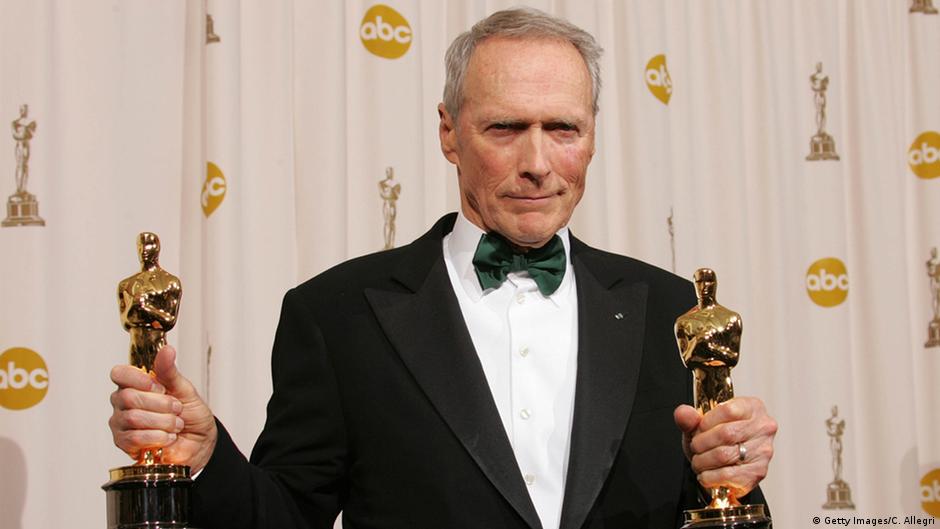
Rise of an anti-hero
Born on May 31, 1930 in San Francisco, Eastwood's career has straddled the contradictions and fissures of American political and cultural life.
After growing up in poverty and playing the piano for coins, Eastwood started acting in low-budget TV westerns and B-grade films. After a roll in the hit western TV show Rawhide (1959), his major breakthrough came playing the ruthless lead in a trilogy of spaghetti westerns with Italian director Sergio Leone.
Starting with A Fistful of Dollars, shot in Spain in 1964 and based on the Samurai epic Yojimbo by Akira Kurosawa, further turns as the outlaw with no name in For a Few Dollars More and The Good, the Bad and the Ugly made Eastwood a global star.
Read more: Hope for a film industry struggling to adapt to corona
He liked playing the anti-hero and moving beyond cliches of the white knight in shining armor. Taking this premise to the next level, he embodied the brutal, ice-cold cop in the Dirty Harry films of the 1970s and 80s. "Do I feel lucky?" Eastwood famously goaded one criminal about to be dealt deadly justice. "Well do you punk?"
But his character's passion for guns and vigilante justice was flavored with a misogyny and racism that he struggled to live down. No darling of the counterculture, he would later call it political correctness run amok.
Doing his own thing
Eastwood might have retained the image of the gun-toting patriot willing to take the law into his own hands, yet after his psychothriller directing debut from 1971, Play Misty for Me, he began to direct affecting melodramas like The Bridges of Madison County of 1995. One reviewer wrote: "Bridges is an admirable achievement, one that probably does more to reposition its maker as someone who can carry a movie without carrying a gun." Eastwood's politics were hardly mainstream however; his liberal costar Meryl Streep would later call him out for his apparent support of Trump.
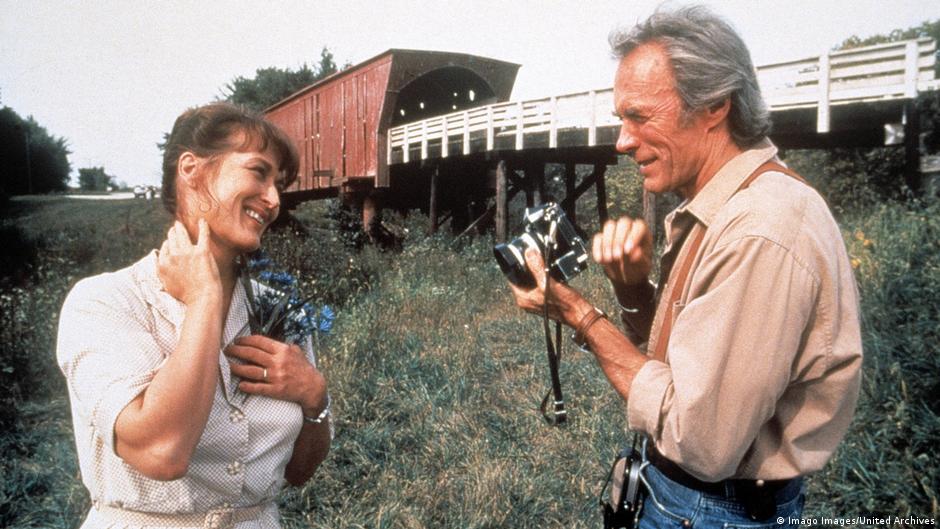
To date, Eastwood has directed near 40 feature films. From the Charlie Parker biopic Bird to finely wrought dramas and mysteries like Mystic River, Changeling and Gran Torino, many of Eastwood's best works date from the new millennium, after he'd passed the age of 70.
Despite his embrace of the politically incorrect politics of Donald Trump in 2016, his shift back to the center in the current election cycle implies that Eastwood remains a free-thinker who does things on his own terms.
"I like the libertarian view, which is to leave everyone alone," he once said. "Even as a kid, I was annoyed by people who wanted to tell everyone how to live."
From stage to public office: 10 celebrities who became politicians
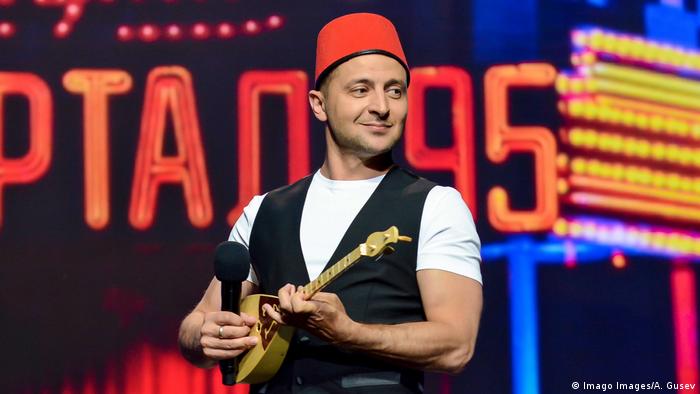
Not too long ago, Volodymyr Zelenskiy cracked jokes on screen in the popular Ukrainian TV show "Servant of the People," in which he plays a history teacher who becomes president of Ukraine. For Zelenskiy, the story has become reality — the actor won the country's presidential election in April. He isn't the only screen actor enter the political scene.
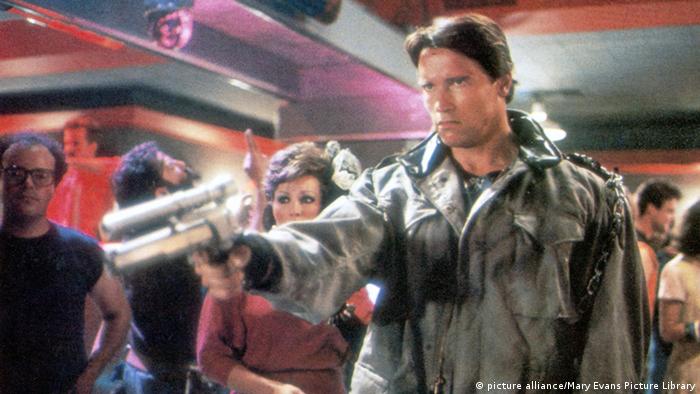
Arnold Schwarzenegger was a bodybuilder and actor before he became governor of California (2003-2011). He is hands down one of the best-known celebrities to make that radical change in career. Initially a tough Republican, he later tightened weapons laws and raised minimum wage. He is still active in environmental protection.
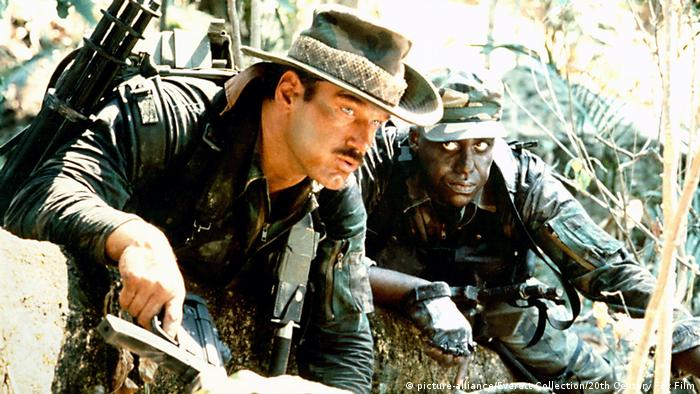
Jesse Ventura — above in the 1987 film "Predator" — was an actor and a professional wrestler before he served first as mayor of Brooklyn Park, Minnesota, and then as the state's governor for a term. He returned to the screen from 2009 to 2012 as host of the US TV series "Conspiracy Theory."
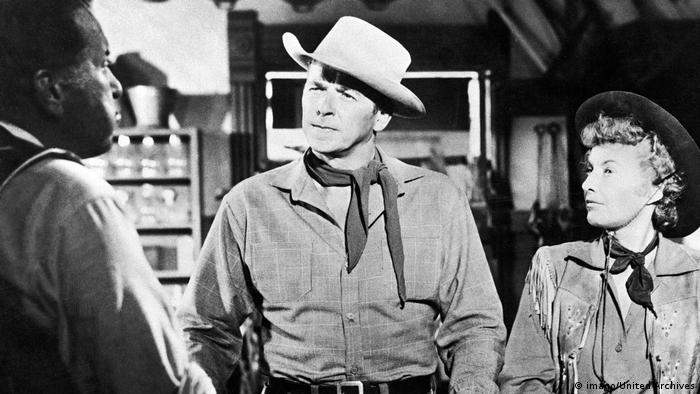
Acting gave Ronald Reagan a taste of politics long before he became governor of California and the 40th US president in 1981. Beginning in 1941, he was active in the union at Warner Bros. film company and later became president of the Screen Actors Guild. Decades later, President Donald Trump picked up Reagan's successful 1980 election campaign slogan, "Let's make America great again."

Clint Eastwood's political career also started in California, where the actor and director served as mayor of his hometown, Carmel, from 1986-88. But the fast-paced film industry drew him back. However he kept his political voice present, and many years later, the legendary film star spoke at the 2016 Republican party convention, endorsing the party's presidential candidate, Donald Trump.
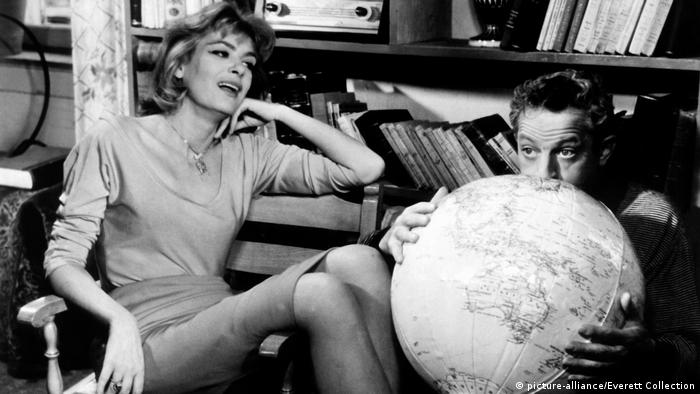
With a politician father and grandfather who were interior minister and mayor of Athens respectively, the Greek actress and chanson singer Melina Mercouri seemed destined to enter politics, too. She became a lawmaker and later served twice as Greece's culture minister.

In 1973 the military coup in Chile forced writer Antonio Skarmeta to flee via Argentina to Berlin. His writing focused on life in exile and being a stranger in a foreign country. Skarmeta returned to his native country 16 years later, only to live in the German capital again from 2000 to 2003, this time as Chilean Ambassador.
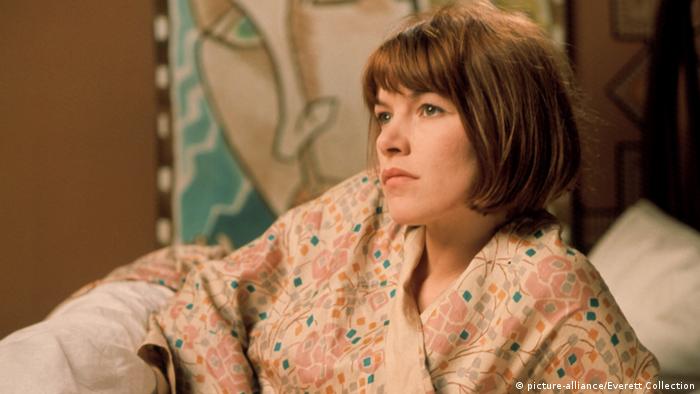
British actress Glenda Jackson won two Oscars for Best Actress, including for the 1969 film "Women in Love" (above). In 1992 she headed into politics for the Labour Party and served for four legislature periods in the House of Commons. She was one of Labour Prime Minister Tony Blair's most outspoken critics during the Iraq War. Jackson finally retired from politics at age 79.
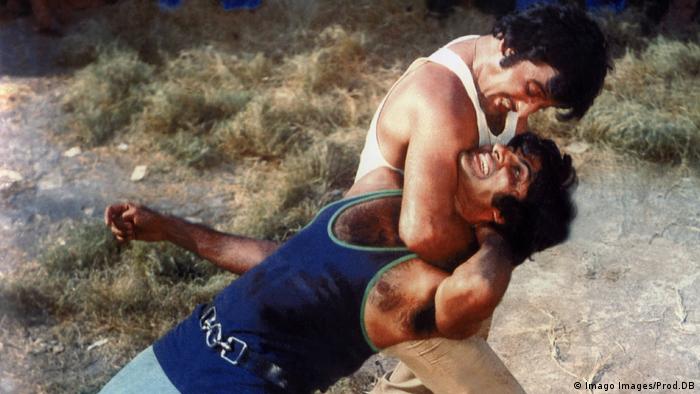
Vinod Khanna was one of the most successful actors in India in the 1970s. Yet he retired from the film business at the height of his career, spending a few years at the ashram of a mystical guru named Osho Rajneesh in the US before winning a seat in the Indian Parliament. Later he served as tourism and culture minister and as state minister in the foreign ministry. Khanna died in 2017.

Michel Martelly was president of Haiti from 2011 to 2016 and tasked with rebuilding the country after a devastating 2010 earthquake. Before that he was a popular singer who performed under the stage name "Sweet Micky" singing Kompa, a form of Haitian folk music.